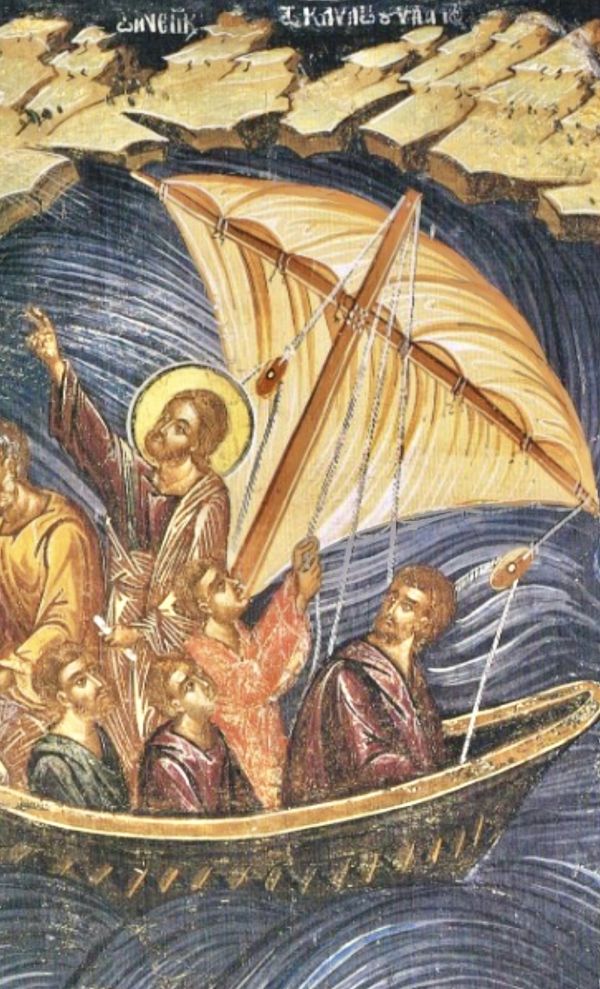(Mk 6:45-52)
Roman communities of the time of Mk [the year of the four Caesars] were on the high seas and the disciples seemed to be alone: the Master had now reached safe Land (vv.46-47).
In the dark, though they wanted to move forward, the tiny fraternities were confused by the ongoing civil war, marginalised by the ideology of power, battered by headwinds.
Using paraphrases from the book of Exodus and Isaiah [new Exodus], Mk seeks to help his communities understand the Mystery of the Person of Jesus.
In particular, the presence of the Father in Him, and that 'Someone within something': in the events of their life experience, also torn by internal polemics.
In such growth, there arises the essential awareness of the 'God-with-us'.
Only the Risen One overcomes the fear of upheavals, but does so without rushing in.
And He even wants to go beyond the storms in which the disciples seem to get wrapped up and lost (v.48).
He is devoid of established patterns that would frame Him forever: it would be like making Him evasive and making Him perish. Indeed - like the disciples of Emmaus - they do not recognise Him (vv.49-50).
But if we were all to welcome Him in the «little boat» (v.51), amazed within ourselves [cf. Greek text] we would realise that there is another Kingdom, where each element is in His power.
The invisible Friend guides and fulfils infallibly, and brings us to «shore» (v.53) - a ‘final condition’ that the force of the waves cannot affect, even when we have the feeling of being swept away by the floatings.
Precisely in the condition of tossed pilgrims, in approaching his Person we would experience a strange and 'different stability': the persistence against the current.
A crossing towards the freedom that 'comes'... from clinging to 'Jesus within' alone. In the chaos of securities, with no guarantees - because the Lord does not take us out of eddies and oscillating situations, to die in norms, or expected conformisms.
Ours is a discordant permanence, fluctuating; and actuating, but in reversals.
The fatigue of questioning ourselves and the suffering that the adventure of Faith hold, will also fade amidst the troubles of the rough seas.
It is enough to disengage oneself from fixed ideas of stability, even religious stability, and to listen to life as it is, embracing it, even in its throng of bumps, bitterness, dashed hopes of harmony, sorrows - engaging with this torrent of new emergencies, and encountering one's own profound nature.
The best vaccine against the anxieties of adventuring together with Christ on the changing waves of the unexpected will be precisely not to avoid worries upstream - rather, to go towards them and welcome them; to recognise oneself, to let them happen.
Even in the time of global crisis, the apprehensions that seem to want to devastate us again, come to us as preparatory energies for other joys that wish to break through - for new cosmic attunements; for amazement starting with ourselves. And guidance of the beyond.
Our little boat is in an upside down, inverted, unequal stability; uncertain, unseemly - yet energetic, prickly, capable of reinventing itself.
It may even be overstretched, but from disarray.
Weekday Liturgy, 9 January












